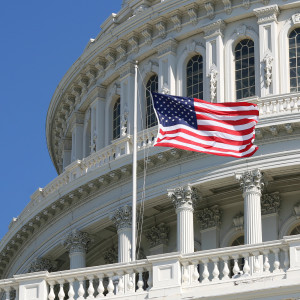President-elect Donald Trump made ending illegal immigration a central focus of his campaign, firing up crowds at his rallies with chants of “build the wall.” Securing the U.S.-Mexico border is expected to remain a priority for Trump when he moves into the White House. But as the new administration and Congress begin in January, doubts remain over whether broader immigration reforms, including those addressing visas for high-skilled workers, will be possible. While there may be an opportunity for an immigration reform package that addresses a range of issues, sources indicate the first emphasis for Congress will be securing the border.
While the issue of high-skilled work visas was discussed frequently on the campaign trail in 2016, a divide on the issue over expansion versus cutbacks makes it unlikely the program finds its way into legislation. Visa programs cover a range of labor market needs from agricultural workers to high-skilled employment. The H-1B visa program is specifically designed to fill positions in specialty occupations. It covers skilled sectors like biotechnology, engineering, healthcare and law.
Republicans in Congress are generally supportive of immigration reform, but it has been a long-standing conservative principle that before reforms can be made, the border must be secured. Without an effort to stop illegal immigration, reforms in Washington’s immigration policy will have little impact, according to many Republicans. Years of rhetoric on this issue makes it difficult for Republicans to support other reforms until efforts are made to stem illegal immigration.
Republican Rep. Ken Buck, who serves on the Judiciary Committee that oversees immigration legislation, says there is room to improve the H-1B program, but securing the border must come first.
“After we secure the border, we must reform our immigration system to ensure that employers have access to the high-skilled labor they need,” Buck said in a statement provided to InsideSources.
Even if conservative Republicans are satisfied with actions taken to secure the border and enforce existing laws, there is little agreement on what must be done to improve the H-1B visa program. Stalwart conservatives like Texas Sen. Ted Cruz focus their policy proposals on cracking down on abuses of the system. Other Republicans, like Cruz’s presidential primary rival, Florida Sen. Marco Rubio, call for expansion of the program with some small reforms to prevent American job loss. Increasing the number of available H-1B visas, which has been capped at 65,000 since 1990, is a top priority for technology companies which rely on foreign workers to fill a knowledge gap because there aren’t enough U.S. workers with the necessary skillsets.
Cruz will be a likely foil to any H-1B changes prior to securing the border. During his presidential campaign, he outlined his view that before reforms can come to the legal immigration system, including high-skill work visas, the border needs to be secured and existing immigration laws must be enforced. Until then, finding support for far-reaching legislation may meet the same demise as the ill-fated “Gang of Eight” immigration bill in 2013.
Also complicating any changes to the H-1B program is that nobody is quite sure where President-elect Trump stands on this issue.
Trump repeatedly changed his mind on H-1B visas during the course of the campaign. His campaign website argued that the visas harmed American workers by holding down wages and elevating unemployment. But at other points during the campaign, Trump’s public comments indicated a very different perspective.
“I’m in favor of people coming into this country legally. And you know what? They can have it any way you want. You can call it visas, you can call it work permits, you can call it anything you want. … As far as the visas are concerned, if we need people, it’s fine,” said Trump during a CNBC Republican primary debate.
Asked about the difference between his website and public statement in another debate, Trump said: “I’m changing. I’m changing. We need highly skilled people in this country, and if we can’t do it, we’ll get them in. But, and we do need in Silicon Valley, we absolutely have to have.” A campaign statement after the debate reversed course again.
And while some of Trump’s campaign rhetoric was hostile to high-tech companies, at a meeting with Silicon Valley business leaders last week, Trump indicated an interest in working closely with the technology industry. There is potential for common ground on the expansion of the H-1B program.
“We want you to keep going with the incredible innovation. There’s nobody like you in the world. There’s nobody like the people in this room,” Trump said at the meeting. “And anything we can do to help this go long. We’re going to be there for you.”
Some in Congress believe reform is possible this year. “There likely is room for president-elect Trump to make positive changes to the H-1B program,” a spokesman for Republican Sen. Chuck Grassley told InsideSources.
Grassley is the current chairman of the Senate Judiciary Committee which handles immigration issues. He introduced legislation last year to help strengthen federal authority to review, investigate and audit employer compliance with program requirements.
“The Judiciary Committee has also held multiple hearings to examine flaws in the program and how they can be addressed,” the spokesman also noted. “Congress and the president could have different approaches to addressing H1-B, simply based on their limited authorities to legislate or regulate, but it’s safe to say that putting American workers first is our shared goal.”
Congress and the president-elect are still in the process of setting the policy agenda for 2017. A congressional source elsewhere told InsideSources that the visa program will likely be an issue discussed in the coming year. Details on what those discussions will look like will not be known until at least January.

